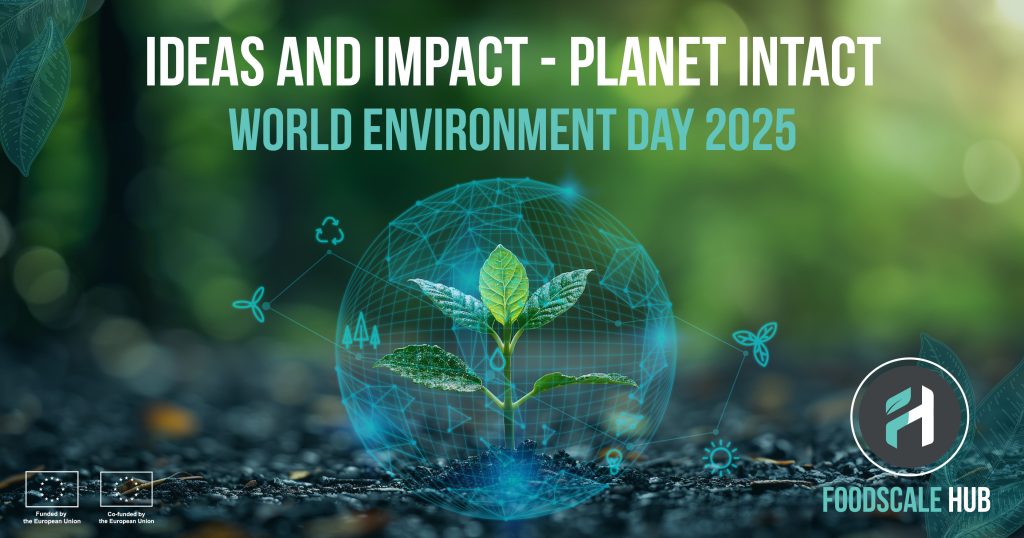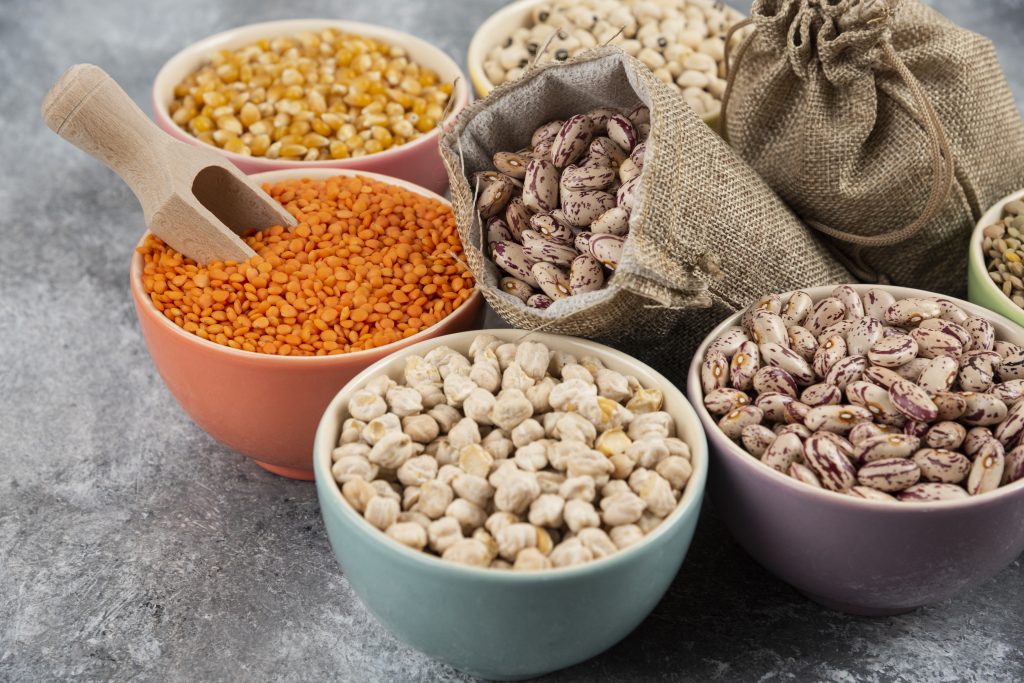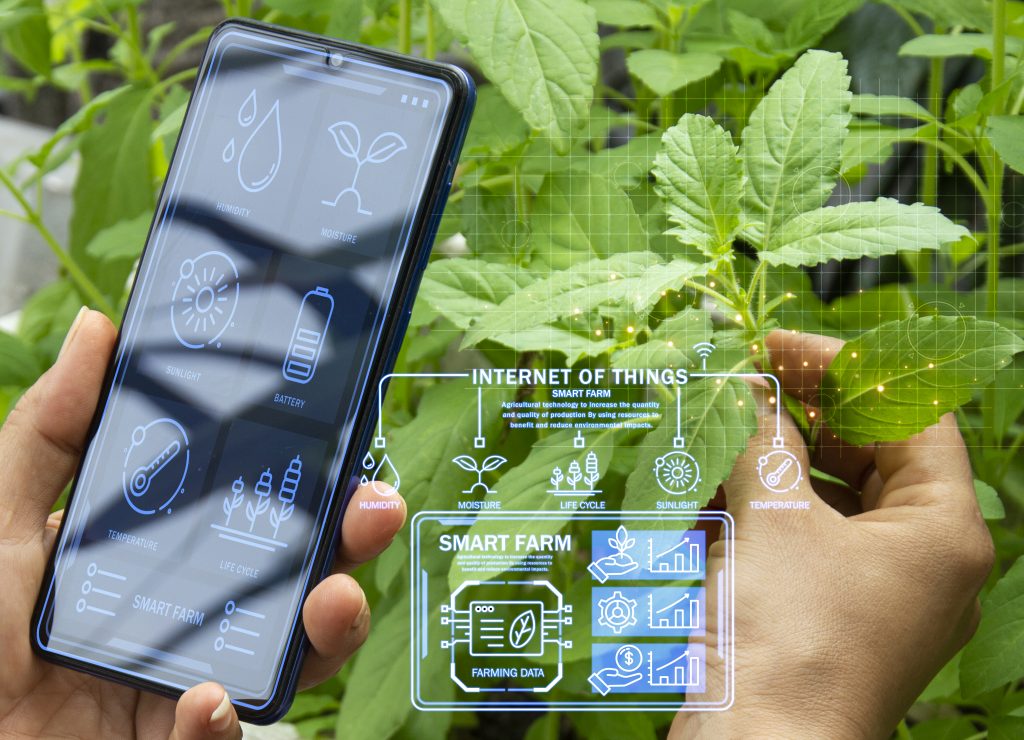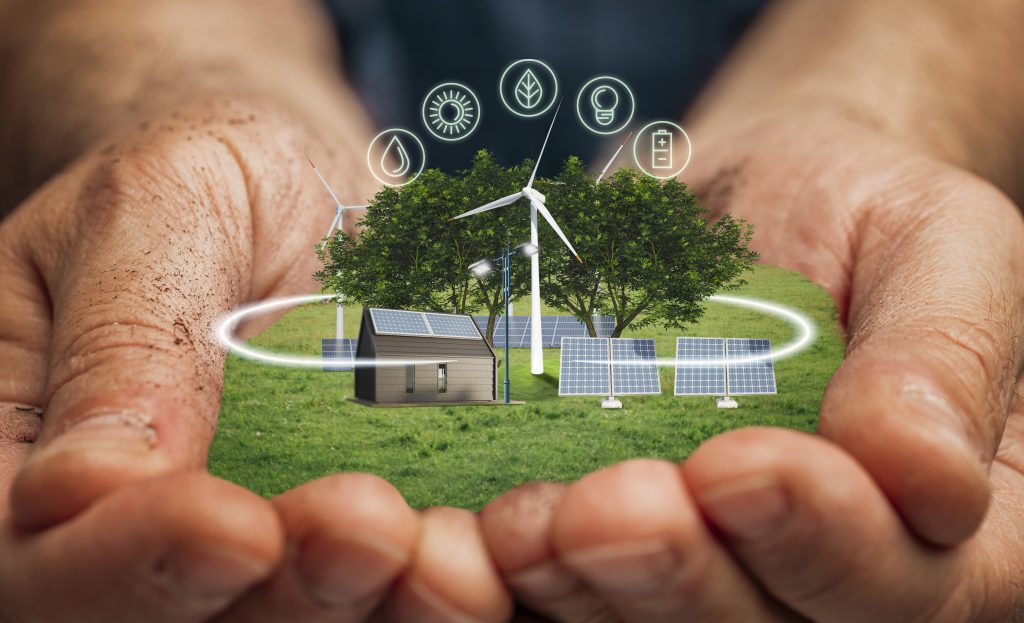World Environment Day 2025: Ideas and Impact – Planet Intact

Every year on June 5th, World Environment Day reminds us of the urgent need to protect our planet through bold ideas and collective action. In 2025, as climate change challenges escalate, the call for bold ideas and collective action has never been louder.
Across Europe and beyond, EU-funded projects are stepping up – rethinking what ends up on our plate, how we grow food, manage land, and produce energy. From cutting food waste and plastic pollution to creating smart farming tools and clean fuels, these projects prove that innovation and sustainability go hand in hand.
Foodscale Hub is proud to be part of Europe’s green transition, actively contributing to 20 EU-funded projects – many of which have sustainability at their core. Read on to learn more about how these projects are making an impact on people, the planet, and our future.
Redesigning Food Systems for People and the Planet
Food systems play a key role in both human and planetary health. Projects like WiseFood, INCiTiS-FOOD, PLANTOMYC, VALPRO Path, and RIA4FOOD are transforming how we produce and consume food – by reducing waste, cutting emissions and providing nutritious meals to ensure our wellbeing.
By addressing food waste through innovation, WiseFood is promoting healthier, more sustainable eating habits. Through three AI-powered applications co-created and tested by citizens through WiseFood Living Labs, the project offers smart recipe suggestions and supports knowledge extraction. The result: better nutrition with reduced environmental impact.
Focusing on circular technologies, INCiTiS-FOOD introduces hydroponics, aquaponics, and insect farming, that recycle resources, reduce waste, and enhance food and nutritional security (FNS) in urban and peri-urban areas across Africa. Designed to operate with minimal land, water, and financial inputs, they offer a low-impact, high-efficiency path to sustainable food systems.
PLANTOMYC is creating hybrid protein products that combine sustainable plant-based ingredients with mycelial protein biomass (MPB). Its near-zero-waste process also transforms fermentation byproducts into GABA-enriched beverages. The result is nutritious, scalable protein alternatives that minimise environmental impact and support circular food systems.
The VALPRO Path project promotes the production of high-protein legumes like peas, lentils, and chickpeas, which naturally fix nitrogen, reducing the need for synthetic fertilizers and lowering greenhouse gas emissions. These crops use less water, improve soil health and carbon storage, and support greater biodiversity, thereby making farming more efficient and sustainable across Europe.
Blending traditional and modern approaches, RIA4FOOD combines organic farming with precision agriculture. Using mild extraction techniques and digital tools, the project preserves nutritional compounds while reducing chemical inputs, energy use, and waste. Its life-cycle approach helps producers scale greener methods across the agri-food sector.

Smart Farming for a Healthier Ecosystem
With farmland covering the majority of Europe, sustainable land management plays a vital role in climate action and ecological recovery. Projects like FarmBioNet, CrackSense, InPlasTwin, STEP UP, Digi4Live, STELAR, IPMorama, OpenAgri, and Farmtopia aim to strengthen biodiversity, protect soil and water resources, and pave the way for the future of agriculture.
To restore degraded ecosystems and strengthen climate resilience, Farmbionet promotes biodiversity-friendly farming practices. By supporting knowledge exchange between farmers, researchers, and other key stakeholders, the project fosters practices that reduce emissions, prevent soil erosion, improve water management, and enhance ecosystem services such as pollination, water purification, and soil fertility.
The CrackSense project addresses fruit cracking, a pre-harvest physiological disorder that leads to considerable yield losses and reduced fruit quality. The project integrates real-time, proximal, and remote sensing technologies into agri-environmental monitoring systems, aiming to reduce waste and resource use. By supporting early detection and informed responses, the project contributes to more sustainable agricultural practices and promotes long-term environmental care.
InPlasTwin investigates the environmental and health impacts of micro- and nano-plastics in agriculture, particularly strawberries. By studying the breakdown of mulching films, MNP uptake by strawberries, and the release of toxic plastic additives, the project aims to promote safer, more sustainable farming practices and mitigate the negative consequences of plastic pollution on the environment and food production.
In supporting the adoption of low-impact, climate-resilient livestock systems, the STEP UP project is reducing greenhouse gas emissions, improving resource efficiency, and encouraging more sustainable land use. Through science-based assessments, data-driven tools, and stakeholder engagement, STEP UP contributes to aligning livestock production with EU climate and biodiversity goals.
With advanced digital technologies such as IoT sensors, artificial intelligence, and phenomics tools, Digi4Live is transforming livestock farming. Through its six case studies, the project demonstrates how real-time monitoring of animals and environmental conditions can reduce emissions, enhance resource efficiency, improve animal welfare, and minimise the environmental impact of livestock production to support EU’s sustainability goals.
STELAR is developing a Knowledge Lake Management System (KLMS) to advance smart agriculture and food safety. By improving access to AI-ready datasets and enabling precision farming, STELAR contributes to lowering greenhouse gas emissions, directly supporting a healthier environment, enhancing semantic interoperability, and enabling intelligent data discovery.
The goal of the IPMorama project is creating smart tools to manage pests and diseases with less need for chemical pesticides. This helps protect biodiversity, keep ecosystems healthy, and reduce environmental damage. By using precise monitoring and early warnings, the project makes crop production safer, more resilient, and more sustainable.
OpenAgri empowers farmers with open-source digital solutions that optimise the use of water, fertilizers, and energy. These tools support smart decisions, boost productivity, and cut emissions. By being inclusive, the project also brings climate-friendly farming to remote and underserved areas, building a more sustainable and fair agricultural future.
At the core of the Farmtopia project are Agricultural Digital Solutions (ADSs) – smart tools that help farmers use water, fertilisers, and land more efficiently, reducing waste and boosting productivity. What sets Farmtopia apart is its focus on small farms: the tools are designed to be easy to use, affordable, and tailored to the needs of smaller plots and diverse farming systems.

Powering the Future with Renewable Energy
Climate neutrality requires a radical shift in how we produce and consume energy. Projects like FUELPHORIA and SUNFUSION are pioneering renewable energy technologies to support Europe’s transition away from fossil fuels.
FUELPHORIA is developing nine full-scale value chains for advanced biofuels and renewable fuels of non-biological origin. By using waste biomass and industrial residues, the project helps reduce greenhouse gas emissions and contributes directly to the European Green Deal and REPowerUP goals for a climate-neutral future.
The SUNFUSION project is developing a sustainable biofuel production process for high-energy shipping and aviation fuels. Using microalgae and oleaginous yeasts, integrating advanced cultivation techniques, solar-powered hydrothermal liquefaction, and biofuel upgrading, the project places a strong focus on energy efficiency and zero-waste principles to mitigate greenhouse gas emissions from the transportation sector.

Every Innovation Counts
These projects are more than scientific achievements, they are paving the way for a more sustainable future. On World Environment Day, they remind us of the importance of saving our planet and show that actions are already being taken to keep our planet intact.
To learn more about current and future Foodscale Hub projects, follow us on social media – LinkedIn, Facebook, Instagram, and X.